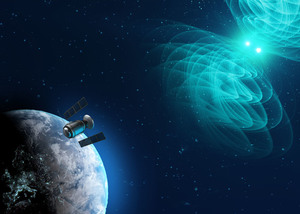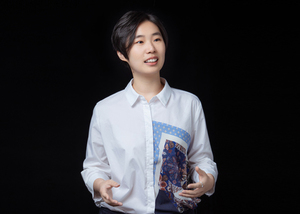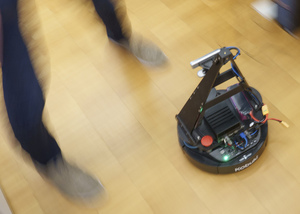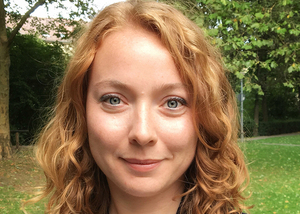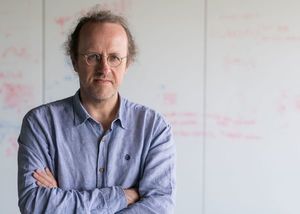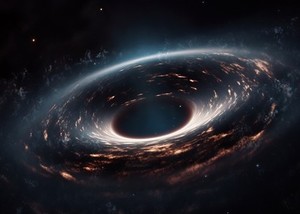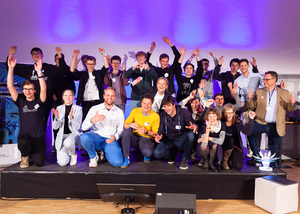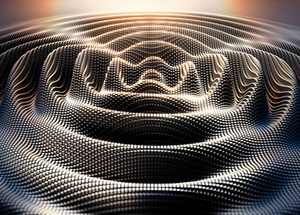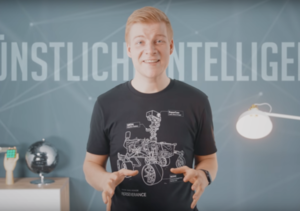Department News
Neural network deciphers gravitational waves from merging neutron stars in a second
- 06 March 2025
Machine learning method could revolutionize multi-messenger astronomy
Binary neutron star mergers emit gravitational waves followed by light. To fully exploit these observations and avoid missing key signals, speed is crucial. In a study to be published in Nature on March 5, 2025, an interdisciplinary team of researchers presents a novel machine learning method that can analyze gravitational waves emitted by neutron star collisions almost instantaneously – even before the merger is fully observed. A neural network processes the data and enables a fast search for visible light and other electromagnetic signals emitted during the collisions. This new method could be instrumental in preparing the field for the next generation of observatories.
Zhijing Jin receives three Rising Star Awards
- 01 January 2024
Ph.D. student Zhijing Jin receives the EECS Rising Star, Rising Star in Data Science, and Rising Star in Machine Learning award. Her research focuses on socially responsible NLP by causal inference.
Roboter entdecken die Welt
- 06 October 2023
Forschende vermitteln Robotern eine Art Körpergefühl
Roboter können den Menschen heute bereits bei manchen alltäglichen Aufgaben unterstützen. Doch unbekannte Umgebungen oder auch kleine Abweichungen in den Aufgaben, auf die sie trainiert sind, überfordern sie. Damit sie rascher lernen, sich auf Neues einzustellen, entwickeln die Forschungsgruppen von Michael Mühlebach und Jörg Stückler am Max-Planck-Institut für Intelligente Systeme in Tübingen neue Trainingsmethoden für die Maschinen. Ihre Roboter müssen sich dabei auch im Pingpong oder Bodyflying bewähren.
Computer scientist Zeynep Akata Schulz receives the €1 million Alfried Krupp Prize 2023
- 05 July 2023
The 37-year-old researcher specializes in machine learning at the University of Tübingen
Bernhard Schölkopf receives the 2022 ACM - AAAI Allen Newell Award for his groundbreaking research in the field of artificial intelligence
- 03 May 2023
One of the world's most important prizes in the research field of AI goes for the first time to a scientist from the Max Planck Society, to Europe for the fourth time.
Casting a safety net: a reliable machine learning approach for analyzing coalescing black holes
- 27 April 2023
Self-checking algorithm interprets gravitational-wave data
An interdisciplinary team from the Max Planck Institute for Intelligent Systems and the Max Planck Institute for Gravitational Physics has developed an algorithm that immediately checks its own calculations of merging black holes’ properties and corrects its result if necessary – inexpensively and rapidly. The machine learning method provides very accurate information about the observed gravitational waves and will be ready for use when the global network of gravitational-wave detectors starts its next observing run in May.
Maximilian Dax Jonas Wildberger Jakob Macke Bernhard Schölkopf
Bundeswettbewerb Künstliche Intelligenz zeichnet Schülerteams aus
- 18 October 2022
Deutschlands KI-Nachwuchs begeisterte beim Finale des führenden Wettbewerbs rund um Künstliche Intelligenz. Ziel aller Teilnehmenden: Mithilfe von KI-Anwendungen die Welt verbessern
BLOG - Three Max-Planck Institutes join forces to develop a next generation contact tracing system
- 02 May 2022
A blog post by Heiner Kremer, Ph.D. student in the Empirical Inference Department at MPI-IS
In a recent work published at Nature Scientific Reports, researchers from the Max-Planck Institutes for Intelligent Systems, Software Systems, and Security and Privacy as well as other institutions joined forces to devise PanCast, a novel privacy-preserving and inclusive system for epidemic risk assessment and notification.
Machine Learning decodes Tremors of the Universe
- 08 December 2021
Neural network analyzes gravitational waves in real-time
Researchers train a neural network to estimate – in just a few seconds – the precise characteristics of merging black holes based on their gravitational-wave emissions. The network determines the masses and spins of the black holes, where in the sky, at what angle, and how far away from Earth the merger took place.
Youtuber Doktor Whatson und MPI-IS erklären gemeinsam KI
- 04 October 2021
Video-Serie über Künstliche Intelligenz gestartet
Folge 1 beschäftigt sich mit Generativen Modellen, Folge 2 mit Kausalität, Folge 3 mit Fairness und Folge 4, die wir vor Ort in Tübingen gedreht haben, mit Reinforcement Learning.

